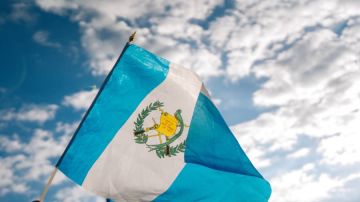Guatemala Further Criminalizes Abortion and Bans Same-Sex Marriage
[UPDATE 3/11/22]: Since the original publication of this story, Guatemalan President Alejandro Giammattei has threatened the country’s Congress with a presidential veto on the new legislation unless they reverse it

Photo: Unsplash/Shalom de León
[UPDATE 3/11/22]: Since the original publication of this story, Guatemalan President Alejandro Giammattei has threatened the country’s Congress with a presidential veto on the new legislation unless they reverse it. He has stated that the law, which criminalizes abortion and prohibits sexual diversity education in schools, violates the Constitution and was passed without his knowledge or support, despite his conservative values, according to The Washington Post.
The majority of the world and select countries in Latin America are implementing progressive initiatives to support women and the LGBTQIA+ community but it’s apparent there is still so much work to be done. Guatemala’s Congress just passed a law known as “Protection of Life and Family” and now women and the LGBTQIA+ community are being targeted more heavily than ever before. The legislation passed with 101 votes in favor and 8 against with 51 lawmakers not present, the Associated Press reported and it’s expected that it’ll be signed into law by conservative President Alejandro Giammattei. It increases the maximum prison sentencing for women convicted of terminating their pregnancies from three years to 10, bans same-sex marriage, and prohibits schools from teaching anything related to the LGBTQIA+ community.
This comes in the wake of Argentina and Mexico decriminalizing abortion in their respective countries, a stark reminder of the traditional values that remain throughout LATAM. Most recently, Colombia increased the number of weeks during pregnancy that an abortion could legally be performed but Guatemala is actively regressing their laws which would discriminate against marginalized communities.
“The law stigmatizes people, discriminates and foments intolerance and hate speech and crimes,” said lawmaker Lucrecia Hernández said according to AP. President Giammattei, however, called the move “an invitation to unite as Guatemalans to protect life from conception until natural death,” during a speech at the National Palace. But it’s clear that he has no interest in protecting life as he does in stripping away the rights of women in the name of Christianity.
Not only can women be imprisoned for up to a decade for being convicted of undergoing an abortion, but doctors and those who assist in facilitating such a crime under the law can face similarly heavy penalties for their participation—up to 12 years. Even if the mother’s life is at risk, the only time when an abortion is allowed to be performed, the necessity of the procedure must be approved by two separate doctors.
The LGBTQIA+ community in Guatemala also continues to face restrictions to their freedom. Same-sex marriage was prohibited in the country before but this law is the first time it is being explicitly banned, further stripping what should be a basic human right.
And similar to what is currently happening in U.S. states like Texas and Florida, transgender children and teachers in Guatemala will be banned from encouraging or teaching material that could potentially “deviate (a child’s) identity according to their birth gender,” according to AP. Which will no doubt make transgender children more vulnerable to bullying, harassment, mental health issues, and hate crimes.
Guatemala is not the only country in Latin America that holds similarly conservative religious values like Honduras and El Salvador, where abortion is illegal even in life-threatening situations and cases of rape. The LGBTQIA+ community, especially gay and trans people, are subject to few rights or legal protection and recognition in either country.
But if Guatemala continues to go down this path instead of following countries like Mexico, Argentina, and Colombia, there’s no telling the catastrophic consequences that will emerge for millions of people.
“This is the most regressive and wholesale attack on the rights of women and L.G.B.T. people that has been passed by a national legislature in Latin America in at least the last 10 years,” Cristian González Cabrera, a Human Rights Watch researcher said, according to The New York Times. “Even more women will be forced to put their health and lives at risk.”

















